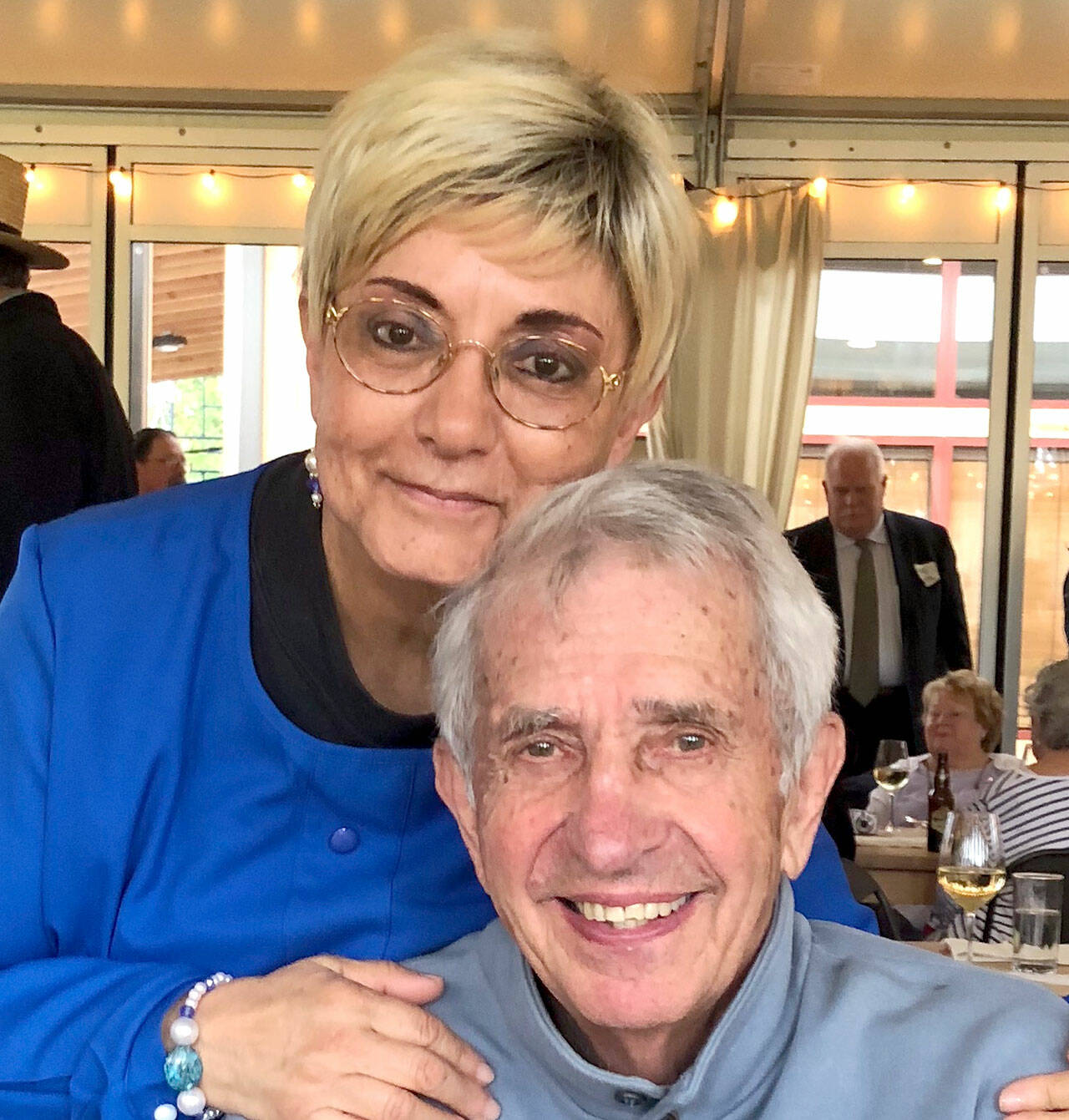This has been a difficult time for Connie Gallant. Her mate of 50 years, JD, died Sept. 2.
“He was my cheerleader. We shared everything,” said Gallant. So it was bittersweet, she said this week, to receive news she’d won the 2021 Eleanor Stopps Environmental Leadership Award.
Stopps — “a beautiful person inside and out,” in Gallant’s words — was a principal driver behind the Protection Island National Wildlife Refuge, established as a marine sanctuary by an act of Congress in 1982. The island stands as a rich haven for species previously endangered: bald eagles and peregrine falcons among them. Elephant seals, rhinoceros auklets, harbor seals and pigeon guillemots also breed there.
The nonprofit Port Townsend Marine Science Center (ptmsc.org) at Fort Worden State Park formally presented the Stopps Award to Gallant on Oct. 13 during its annual Stewardship Celebration.
The now 13-year-old prize honors a Clallam or Jefferson county resident who sets an example of community leadership the way Stopps, who died in 2012 at age 92, did.
Gallant moved to Quilcene four decades ago, just as Protection Island became a national wildlife refuge. In her southern part of the Quimper Peninsula, Gallant focused on Quilcene and Dabob bays.
She got to work organizing opposition to excessive commercial oyster farming, which was depleting the local waters of oxygen essential to sustaining the ecosystem, the marine science center’s Liesl Slabaugh noted.
“Soon Gallant was working with the Olympic Forest Coalition, the Olympic Park Associates, the Olympic Peninsula Audubon Society and the North Olympic Group of the Sierra Club to halt deforestation throughout the Olympic Peninsula,” she said.
“One of Gallant’s most notable achievements has been her groundbreaking work on the Wild Olympics Campaign, which spawned the Wild Olympics Wilderness and Wild and Scenic Rivers Act.
“The federal legislation has passed the U.S. House of Representatives and awaits approval by the U.S. Senate. If passed by both chambers, the legislation is expected to become law following President Biden’s signature.”
In a video announcing the Stopps Award, Gallant offered a reminder: “We must come to understand that it is cheaper to protect than to restore wilderness,” she said.
At 73 — an age her husband had said makes her “a young chick” — Gallant said environmental projects still energize her.
“You have to be hopeful. You have to believe things will be able to change. Believe me, I have not necessarily gone out of my way to pick the projects. But when something of value comes my way, I jump in.”
Gallant was born in Guantánamo, Cuba. She came to the United States shortly before her 14th birthday in 1962 — without her mother, who stayed behind to help her brother, who had been jailed by Fidel Castro’s government.
The family was later reunited; Gallant grew up in Boston. She credits her mom, Maria Fernando, for instilling a determined attitude.
“She was 90 years old when she passed away, and still very upbeat about everything. She loved to laugh … You have to take time to enjoy your life. I know too well after my love passed away that life is too short,” Gallant said.
“If you feel very strongly about whatever it is, projects, your work, environmental or political activism, you need to give it your all. Enjoy the process. Enjoy the company of the people around you.”
JD, who lived to be 89, practiced this, Gallant added.
“We both had incredible adventures,” traveling through the West, discovering Quilcene, finding a community of friends.
Yet “during COVID, we were actually thrilled we didn’t have to go anywhere,” she said.
“Wherever his spirit is, he’s happy for me.”



